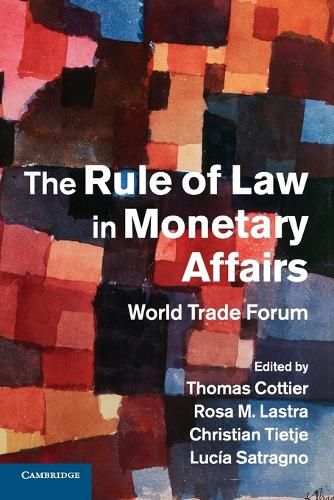Readings Newsletter
Become a Readings Member to make your shopping experience even easier.
Sign in or sign up for free!
You’re not far away from qualifying for FREE standard shipping within Australia
You’ve qualified for FREE standard shipping within Australia
The cart is loading…






The global financial crisis and subsequent sovereign debt crisis in Europe demonstrated that the relationship between law and economics in the design of the monetary system must be revisited. International monetary affairs are usually conducted via domestic monetary policies which are formulated by independent central banks and informed mainly by economics, without much room being left to substantive law. Based on the 2012 World Trade Forum, this volume brings together leading scholars, practitioners and policy makers in international economic law in order to examine the potential of law and legal methodology to contribute to international monetary stability. It explores the links between and lessons to be learnt from existing international investment and trading systems and studies some specific policy issues which have a direct impact on monetary affairs, such as exchange rate policy, sovereign debt, taxation, competitiveness, trade imbalances, austerity programmes and human rights.
$9.00 standard shipping within Australia
FREE standard shipping within Australia for orders over $100.00
Express & International shipping calculated at checkout
The global financial crisis and subsequent sovereign debt crisis in Europe demonstrated that the relationship between law and economics in the design of the monetary system must be revisited. International monetary affairs are usually conducted via domestic monetary policies which are formulated by independent central banks and informed mainly by economics, without much room being left to substantive law. Based on the 2012 World Trade Forum, this volume brings together leading scholars, practitioners and policy makers in international economic law in order to examine the potential of law and legal methodology to contribute to international monetary stability. It explores the links between and lessons to be learnt from existing international investment and trading systems and studies some specific policy issues which have a direct impact on monetary affairs, such as exchange rate policy, sovereign debt, taxation, competitiveness, trade imbalances, austerity programmes and human rights.